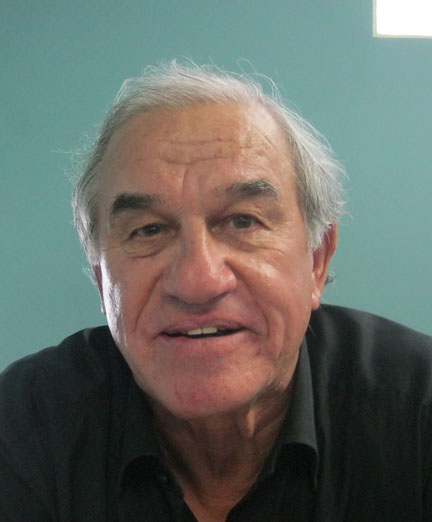At 71, Paul Chartrand, a retired law professor, published author, and internationally recognized expert on indigenous law and policy, is trying something new – private practice.

On April 27, Chartrand was finally called to the Manitoba bar and is now a member of Boudreau Law, a firm established by Norman Boudreau in 2013, principally to serve the Aboriginal community.
Chartrand is from the Manitoba Metis community of St. Laurent on the eastern shore of Lake Manitoba and still makes his home there. After growing up in the community, he left in the mid-1960s to see the world. His travels took him to Queensland in Australia where he first became a teacher and later entered law school.
In Australia, he notes, as in England, the legal profession draws a clear line between barristers and solicitors. Chartrand was initially attracted to a career as a barrister but, upon graduation, he decided he would rather teach law.
He spent 10 years in Queensland before returning to Canada (although, he notes, he has returned to Australia several times over the years to teach for short periods of time). He earned a second Law degree at the University of Saskatchewan and was a long-time professor at the university specializing in domestic, international, and comparative indigenous law and policy.
He notes he has written 60 publications and is currently working on three books on indigenous legal issues.
His expertise has also been much in demand nationally and internationally. In the 1980s, he was heavily involved in Canada’s efforts to change the Constitution. From 1988 to 1991, Chartrand was a member of Manitoba’s Aboriginal Justice Inquiry and the follow-up Aboriginal Justice Implementation Commission.
“The provincial government accepted all of our recommendations,” he says.
In 1991, he was appointed as one of the members of the Mulroney government’s Royal Commission on Aboriginal Peoples. He was also appointed to the board of the National Aboriginal Healing Foundation.
Internationally, he helped write the United Nations Declaration on the Rights of Indigenous Peoples and consulted on a similar document for the Organization of American States.
While he has been busy writing and consulting since his retirement in 2009, Chartrand says he has long considered the idea of being called to the bar with the prospect of arguing cases in court.
“I mentioned this interest to Norm Boudreau, whom I had gotten to know through some work we did together,” says Chartrand. “He encouraged me to pursue it and invited me to join his firm once I was called to the bar.
Because Chartrand was a law professor for so many years, a rarely used section of Manitoba legislation exempts him from having to article.
“I wasn’t interested in opening my own office, but Boudreau has a lot of really good people working for him. And I can work part-time and from home. I still have a lot of energy and the law remains of great interest to me. This gives me an opportunity to experience the law in a different way.”

 On April 27, Chartrand was finally called to the Manitoba bar and is now a member of Boudreau Law, a firm established by Norman Boudreau in 2013, principally to serve the Aboriginal community.
On April 27, Chartrand was finally called to the Manitoba bar and is now a member of Boudreau Law, a firm established by Norman Boudreau in 2013, principally to serve the Aboriginal community.